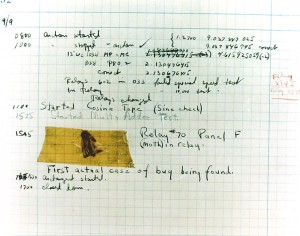 We began the long awaited Spring symposium “Liberal Arts Learning in the Digital Age” yesterday. Mala Radhakrishnan (Chemistry), Orit Shaer (Computer Science), Brian Tjaden (Computer Science), and Michelle Ferreirae ’13 talked about Interdisciplinary Science to a packed crowd in the Science Center 278 y’day evening. We had another 40 who viewed the webcast. The recorded version of the presentation will be made available on Wellesley’s YouTube later today. It was yet another display of the high quality teaching, learning and research taking place at the College. The presentations clearly demonstrated how the most interesting scientific research today requires knowledge that extends far beyond just the core subject. It was clear that the computational science is a core competency that would be required of all researchers and quite obviously, this is one of the areas of relevance to LTS as we move forward – how do we collaborate and engage with the faculty and students in helping with this competency.
We began the long awaited Spring symposium “Liberal Arts Learning in the Digital Age” yesterday. Mala Radhakrishnan (Chemistry), Orit Shaer (Computer Science), Brian Tjaden (Computer Science), and Michelle Ferreirae ’13 talked about Interdisciplinary Science to a packed crowd in the Science Center 278 y’day evening. We had another 40 who viewed the webcast. The recorded version of the presentation will be made available on Wellesley’s YouTube later today. It was yet another display of the high quality teaching, learning and research taking place at the College. The presentations clearly demonstrated how the most interesting scientific research today requires knowledge that extends far beyond just the core subject. It was clear that the computational science is a core competency that would be required of all researchers and quite obviously, this is one of the areas of relevance to LTS as we move forward – how do we collaborate and engage with the faculty and students in helping with this competency.
The presenters talked about genomic data analysis , computational chemistry of protein-protein interactions and drug development and human computer interaction. In the first case, Brian, a CS faculty, is carrying out research that requires a deeper understanding of biology, biochemistry and chemistry amongst a few other disciplines. Similarly, in the second case, Mala needed to learn cell biology, physics, and applied math. BTW, she is also a poet who has written poems about atoms and molecules. Both Orit and Michelle shared their work in developing intuitive, gesture based software frameworks that helps biologists in their collaborative lab work. In each case, the presenter highlighted the importance of the interdisciplinary and collaborative nature of their work and how the liberal arts education paradigm fits nicely with this model.
